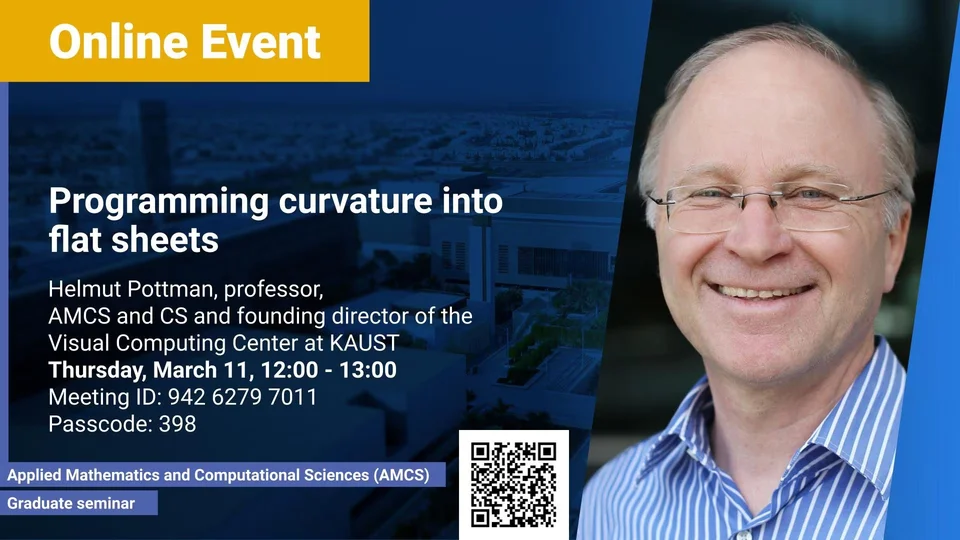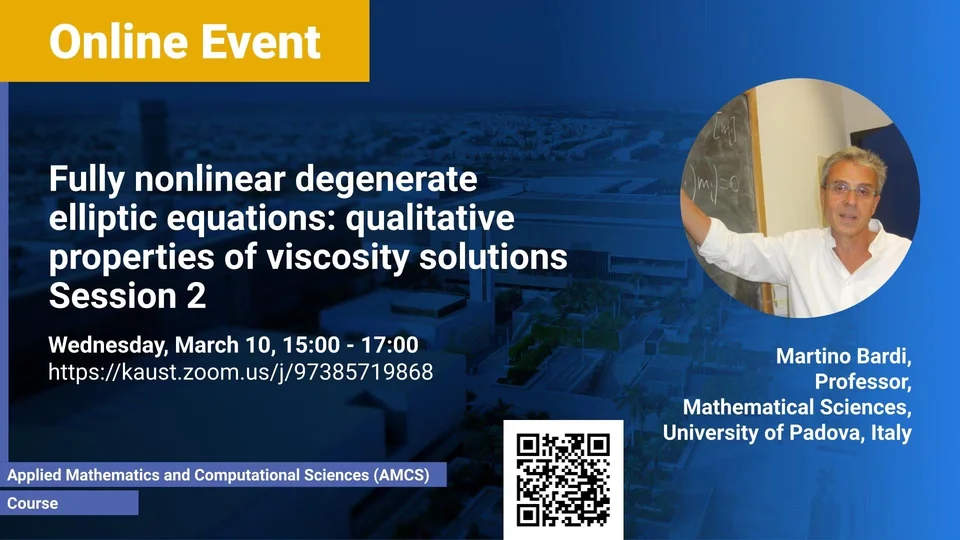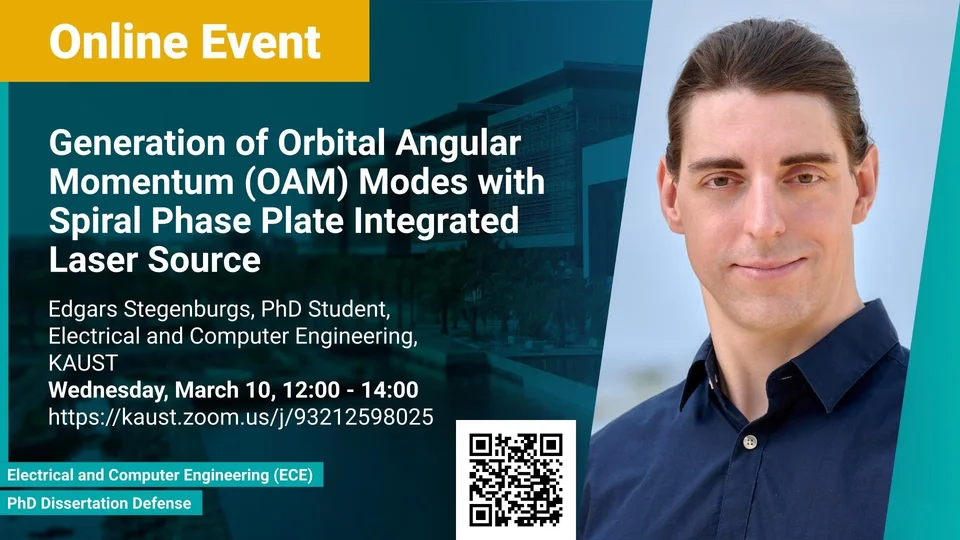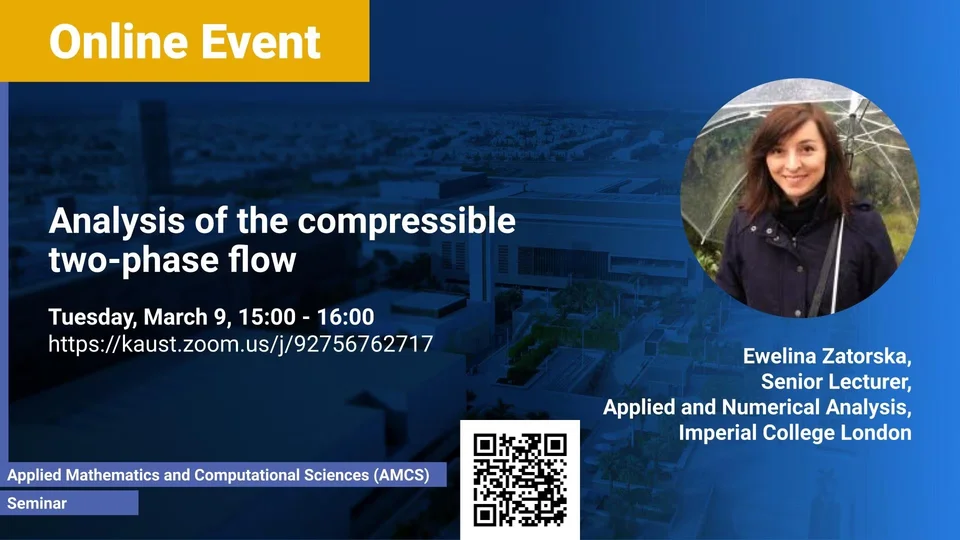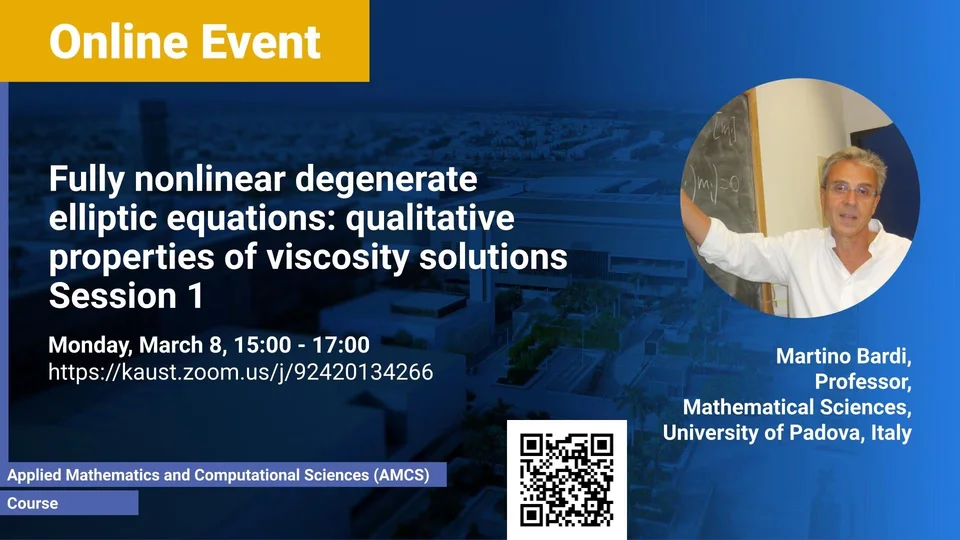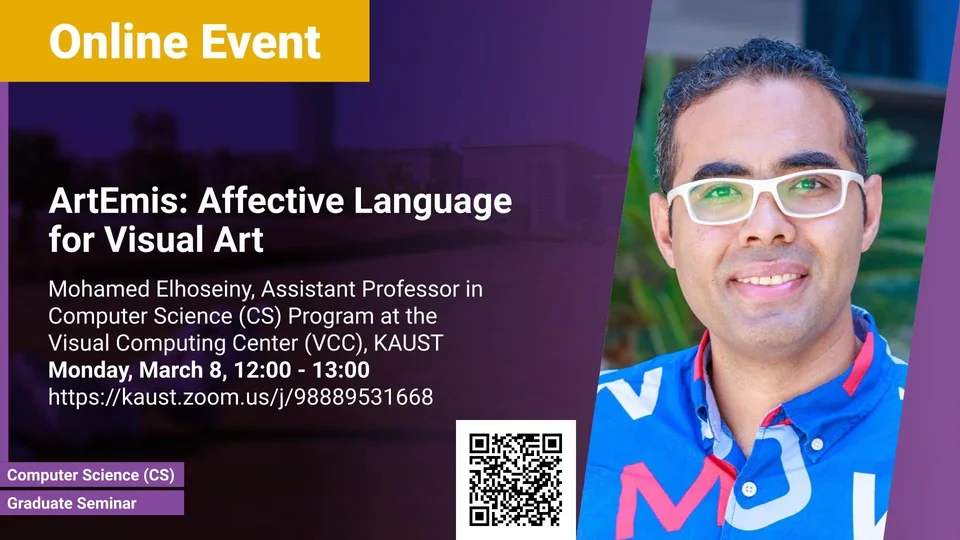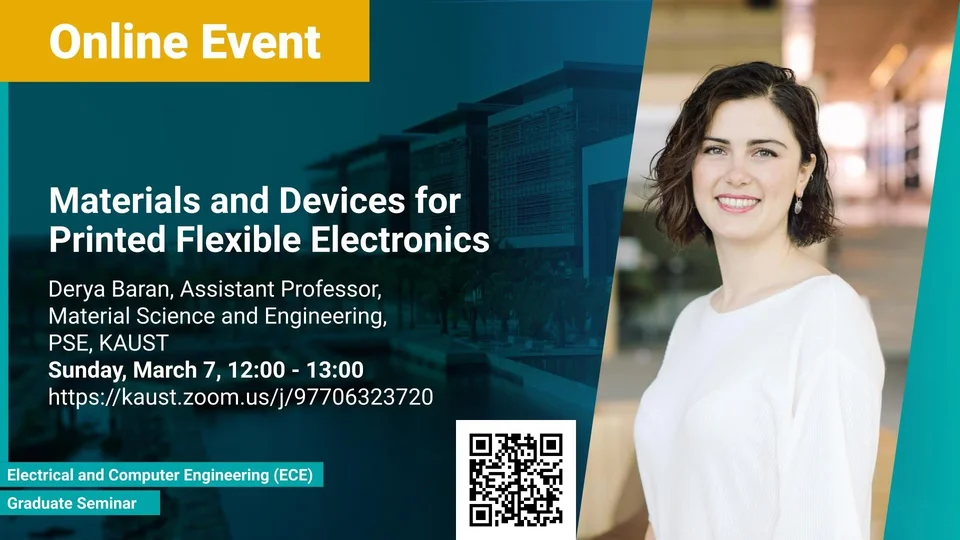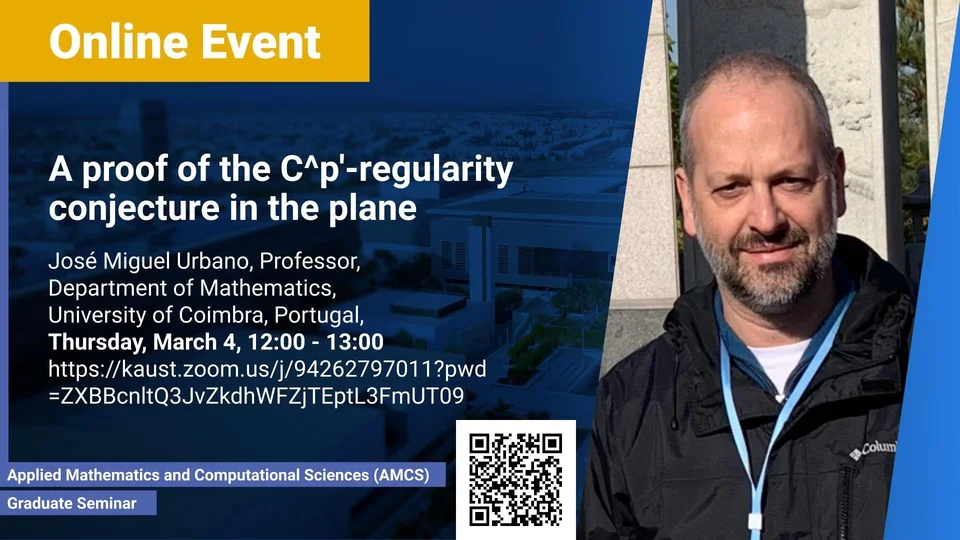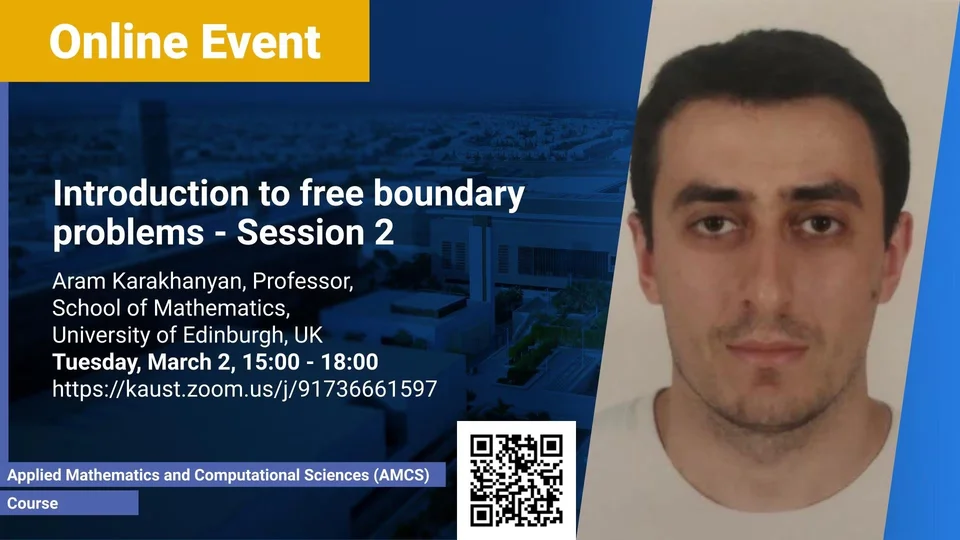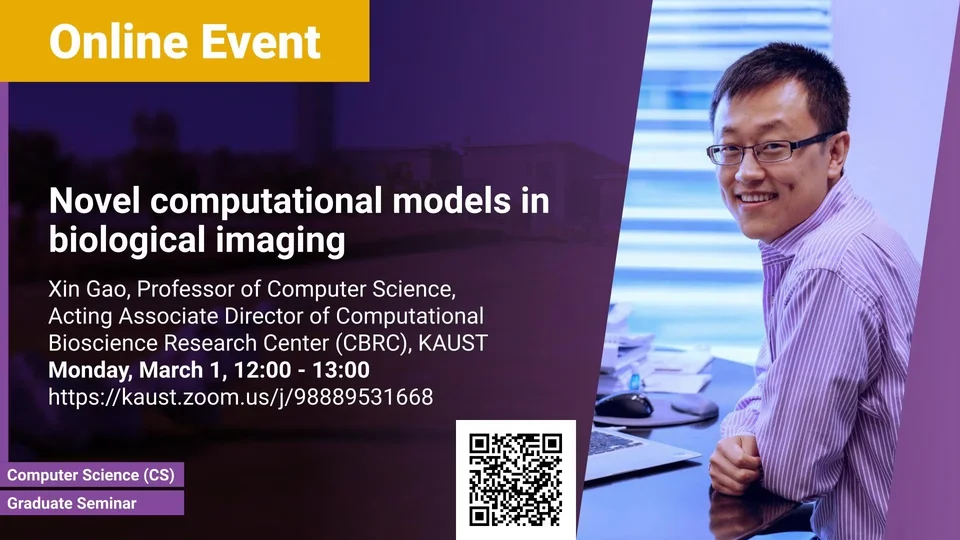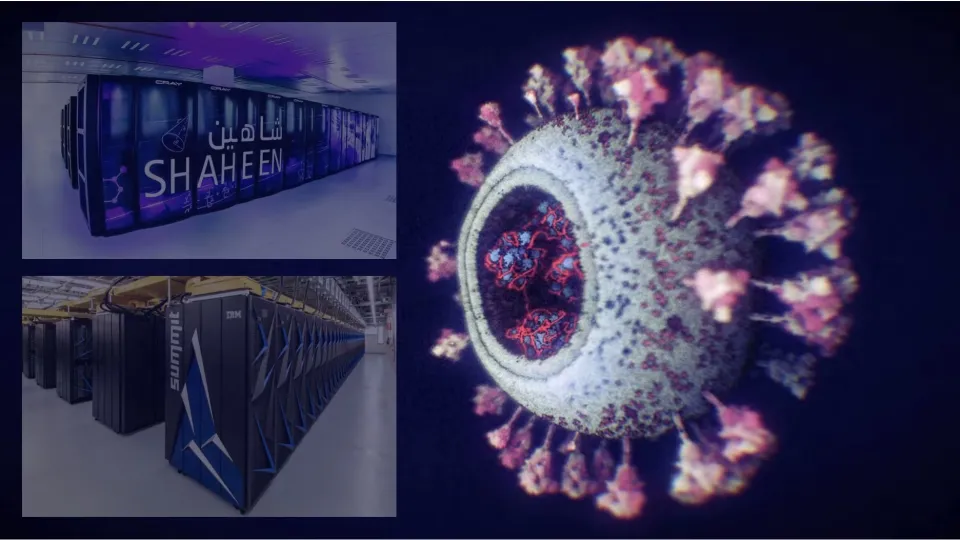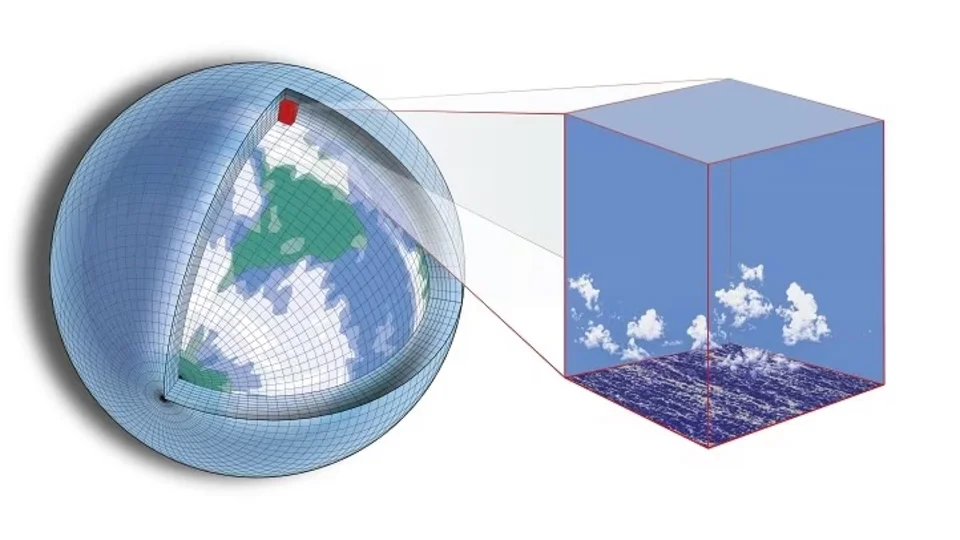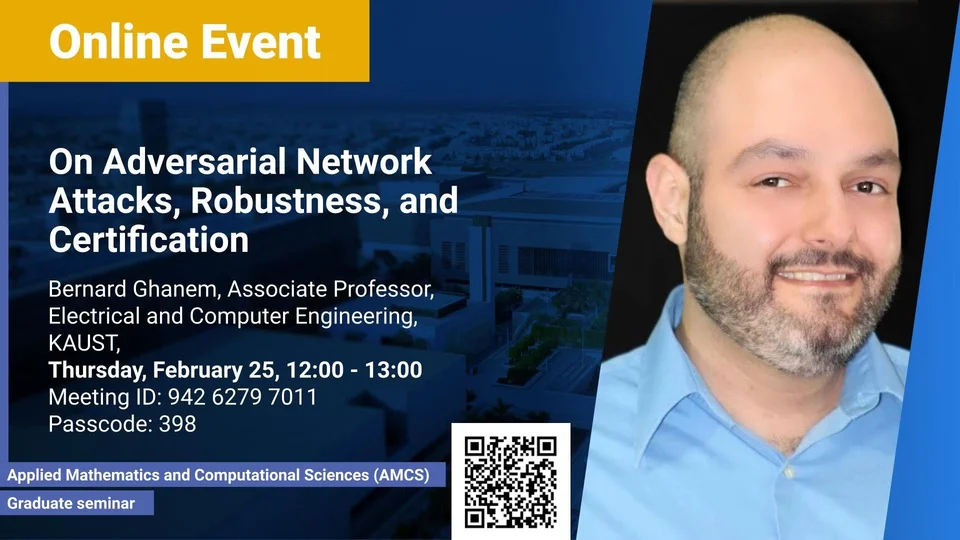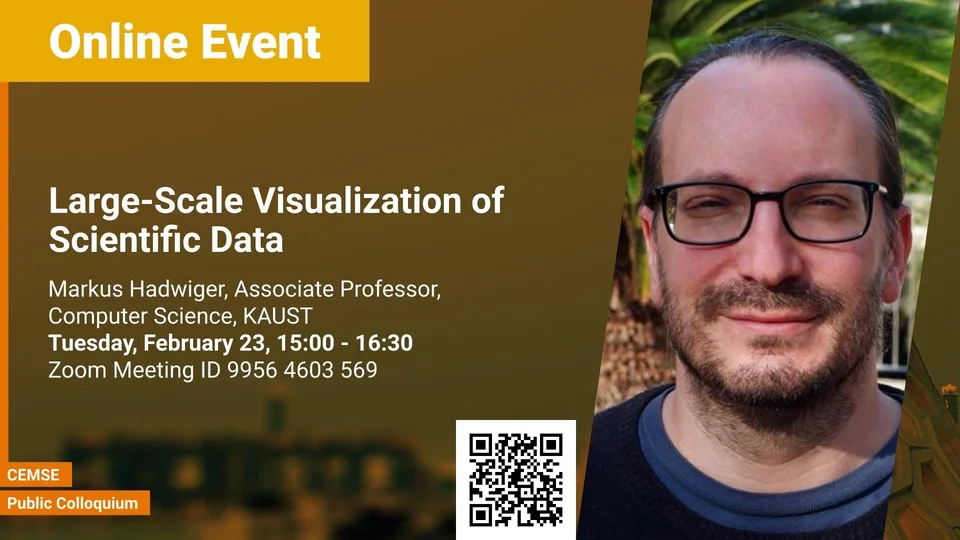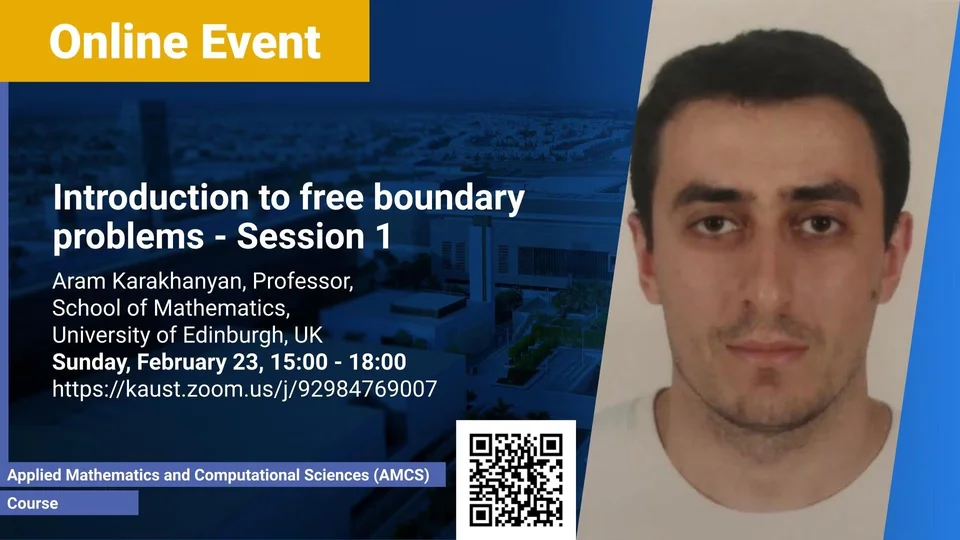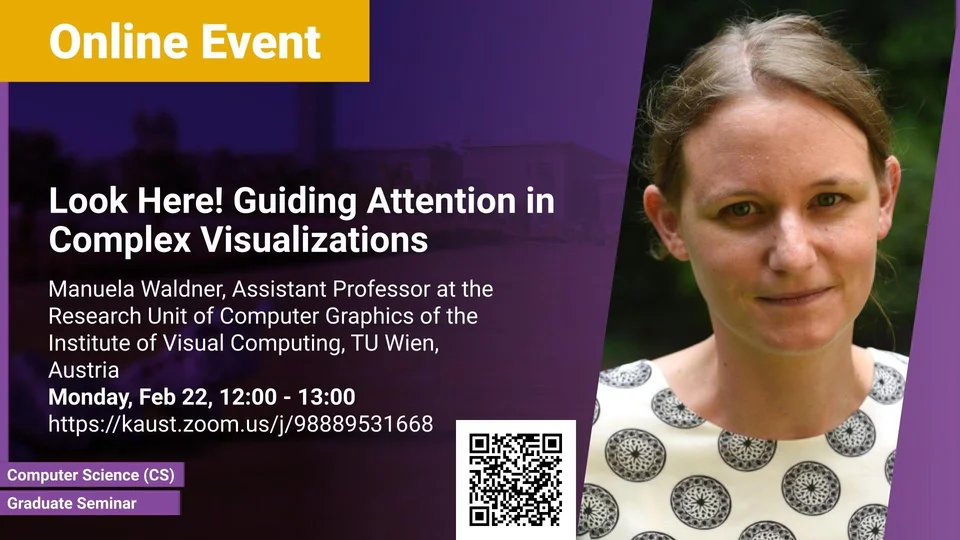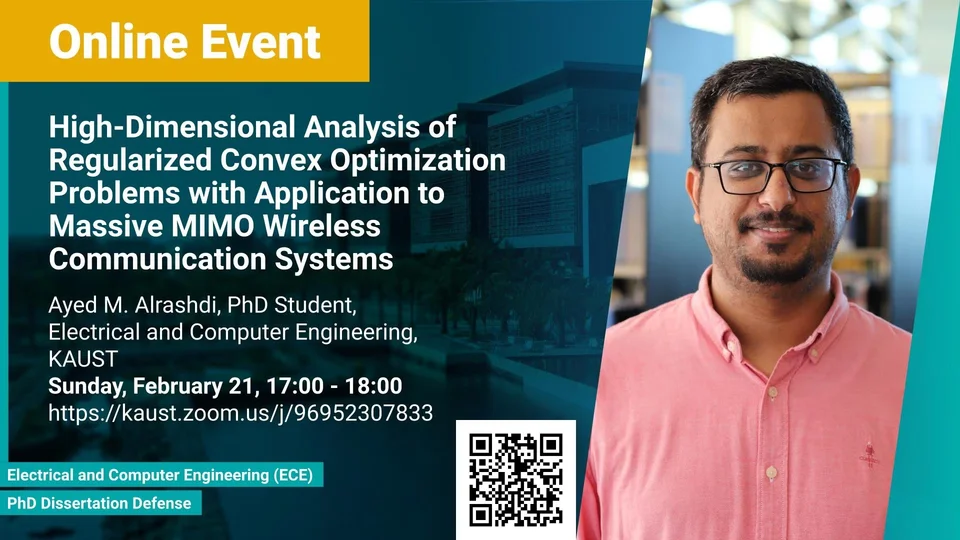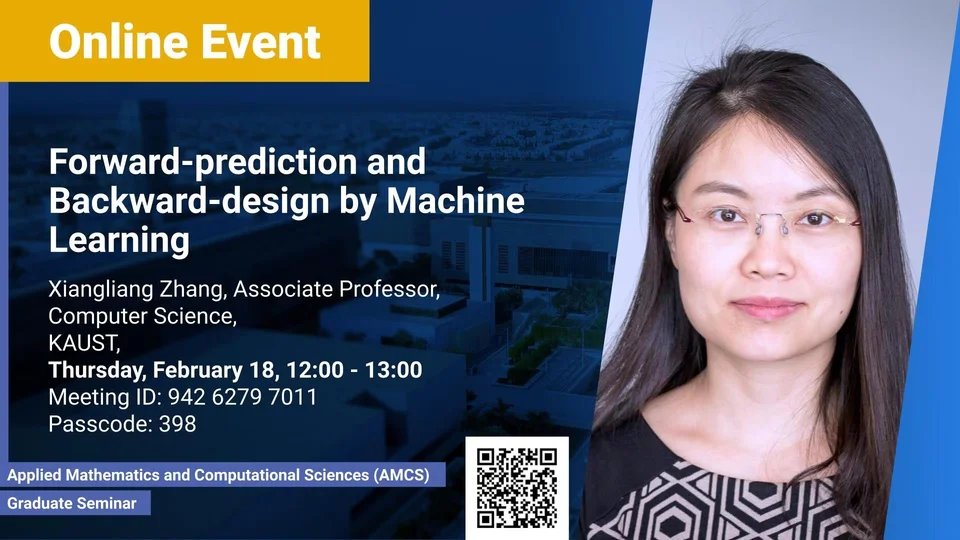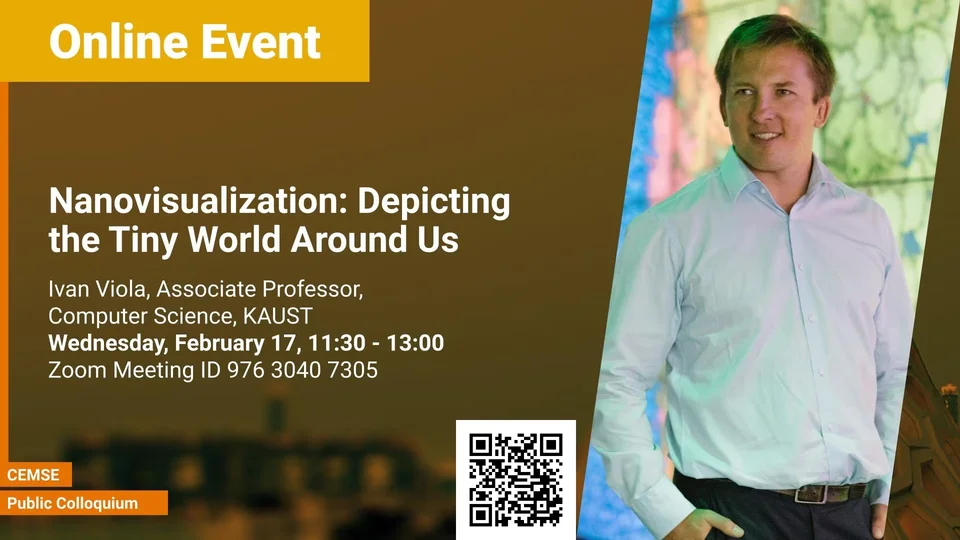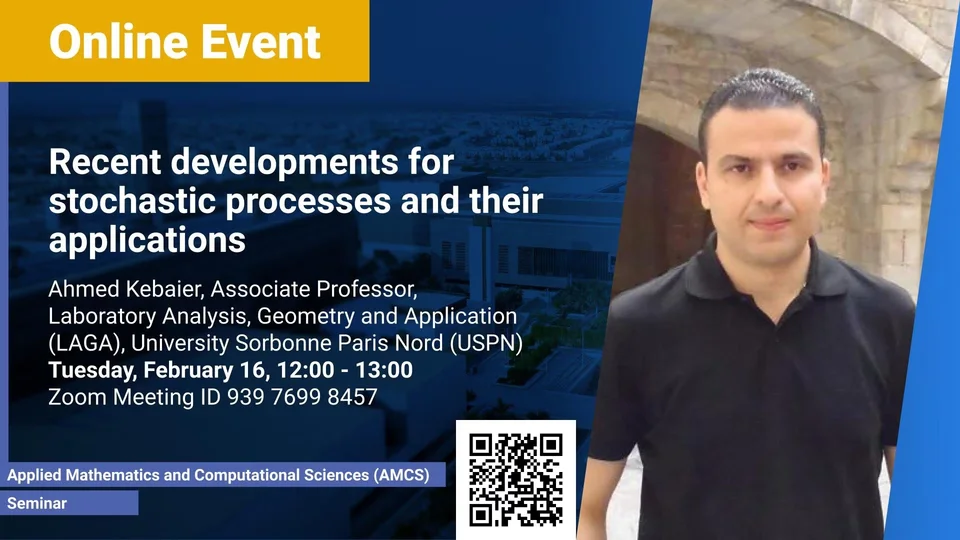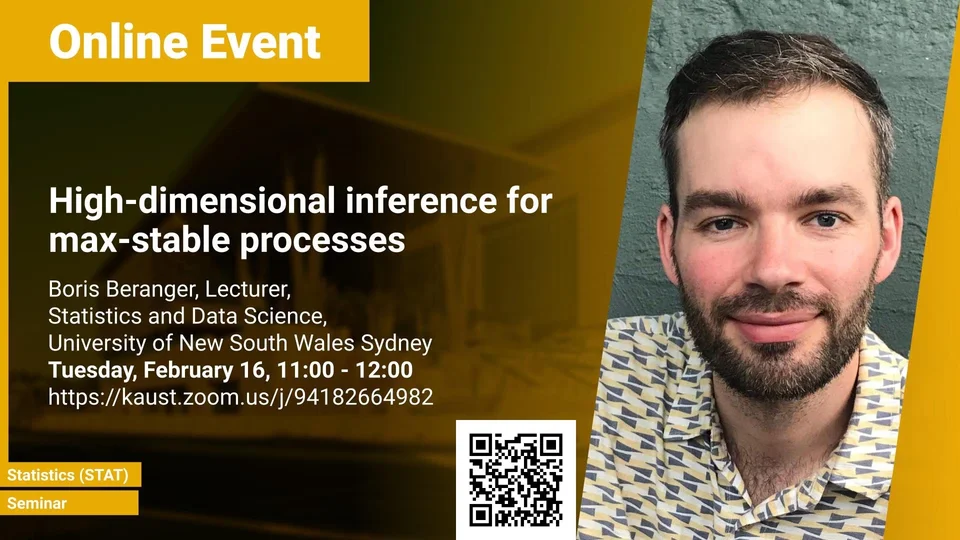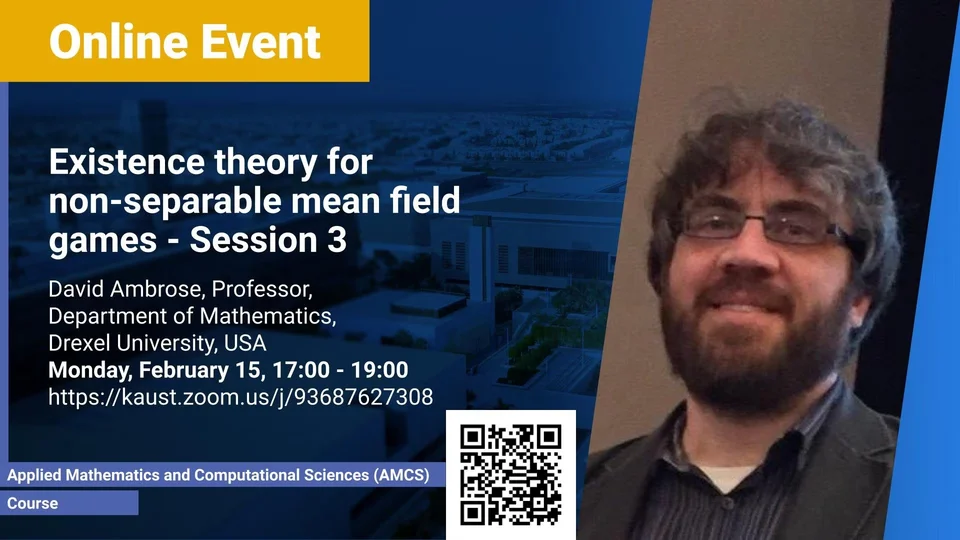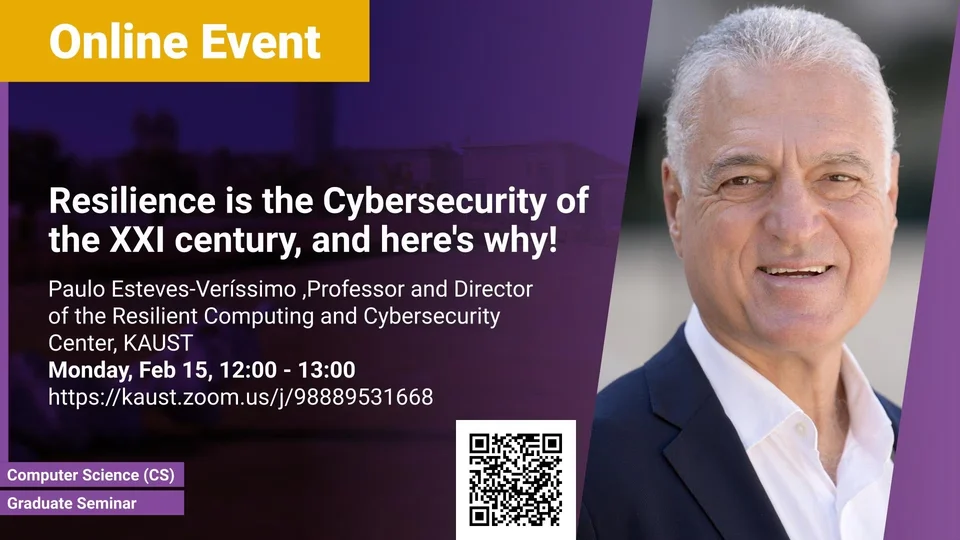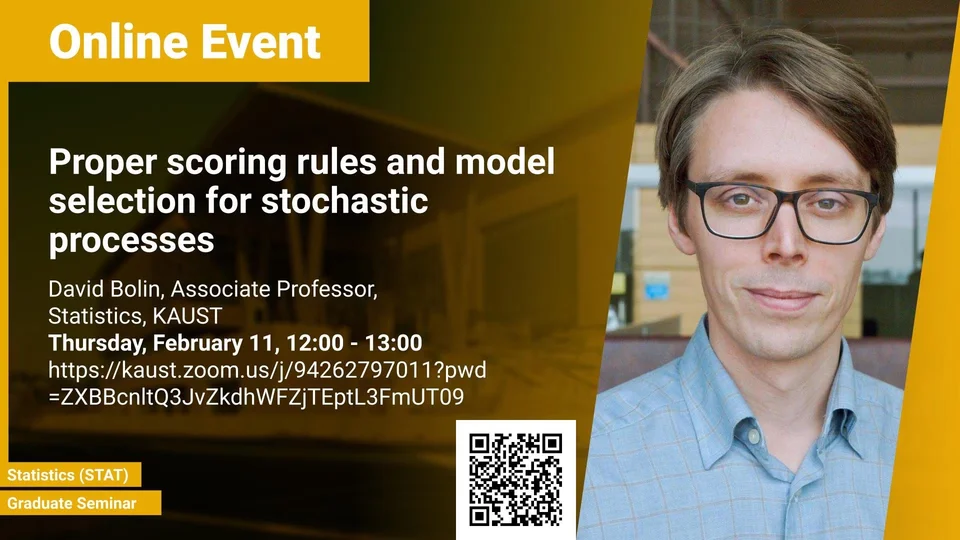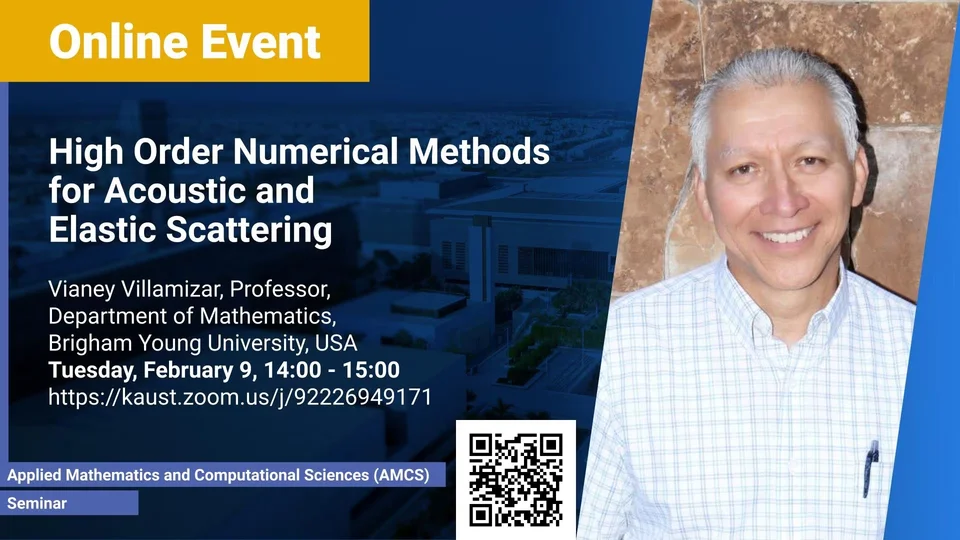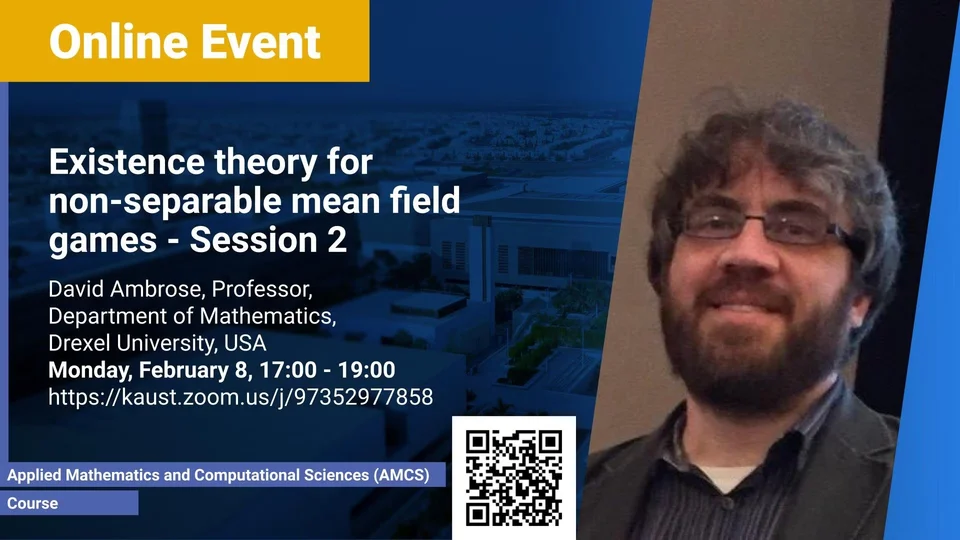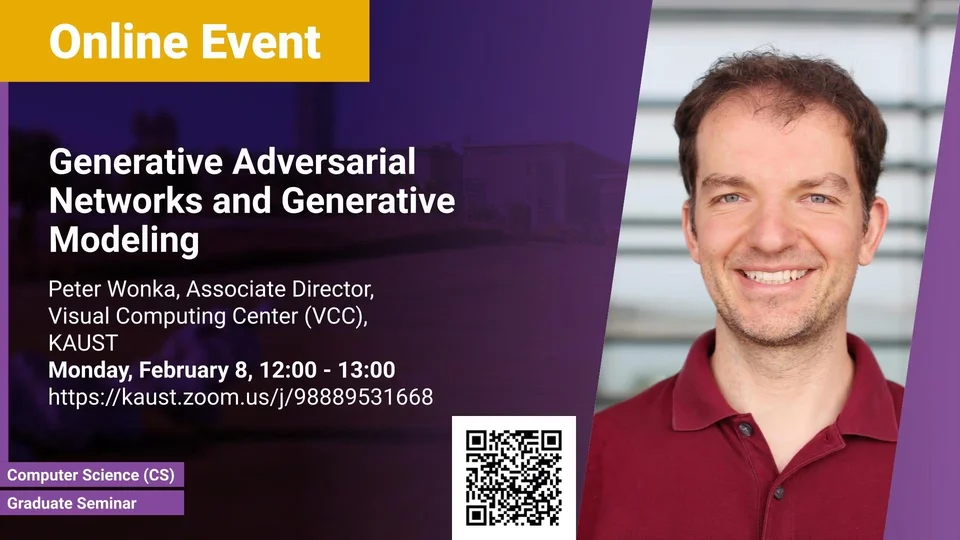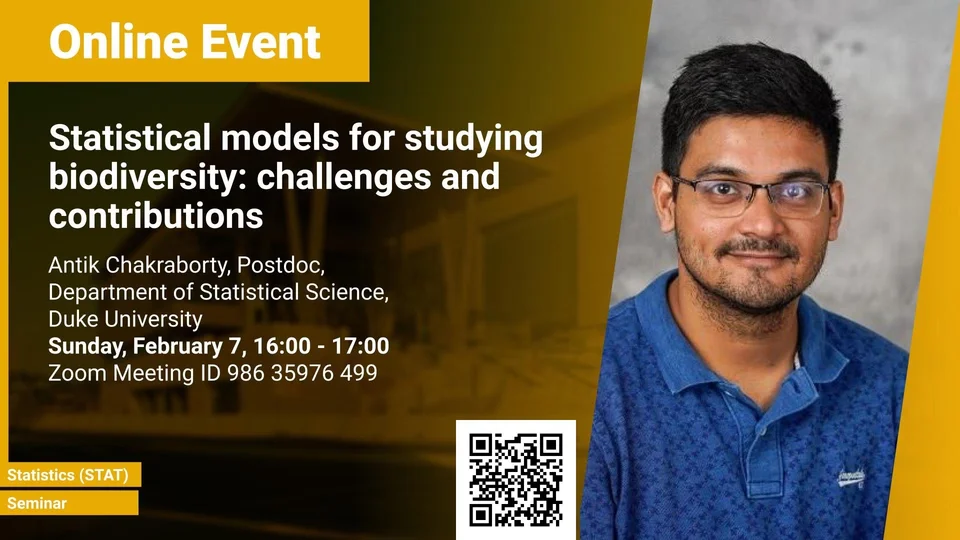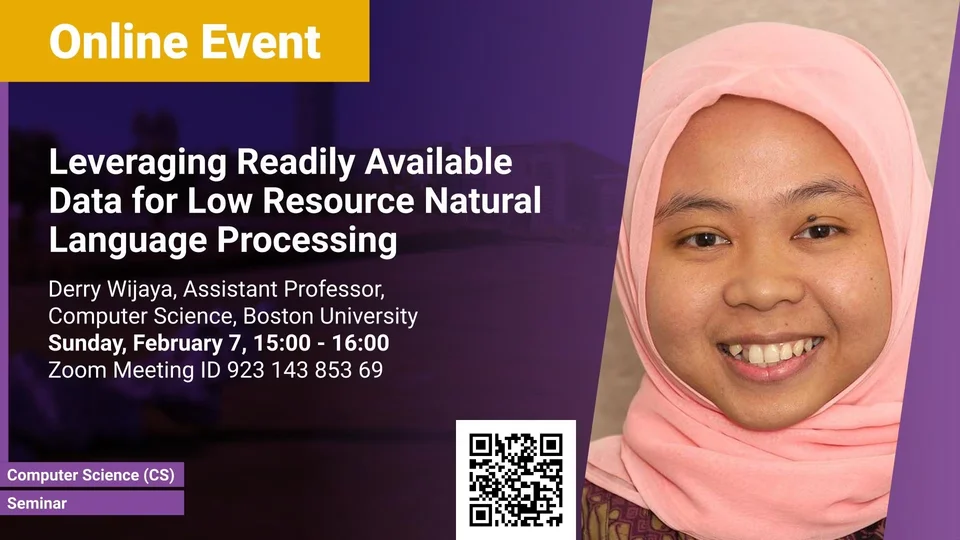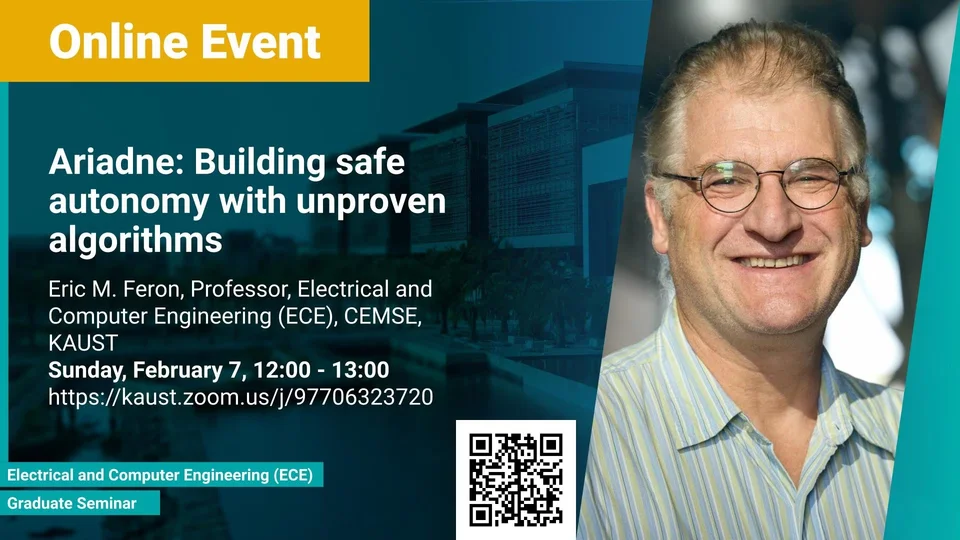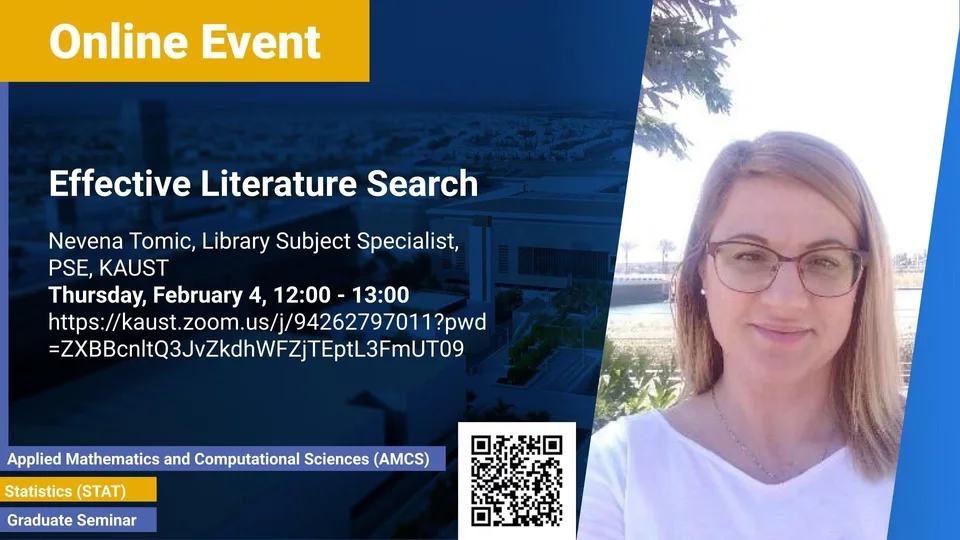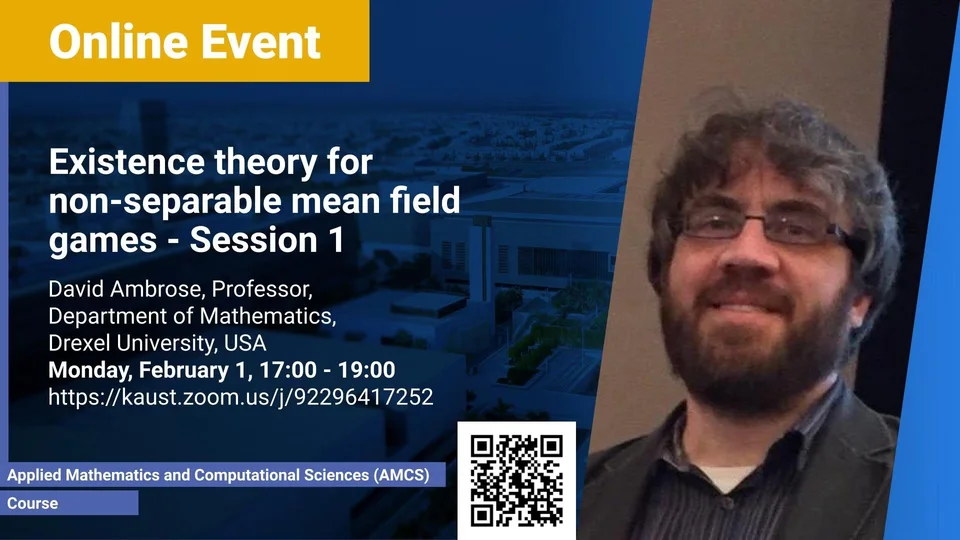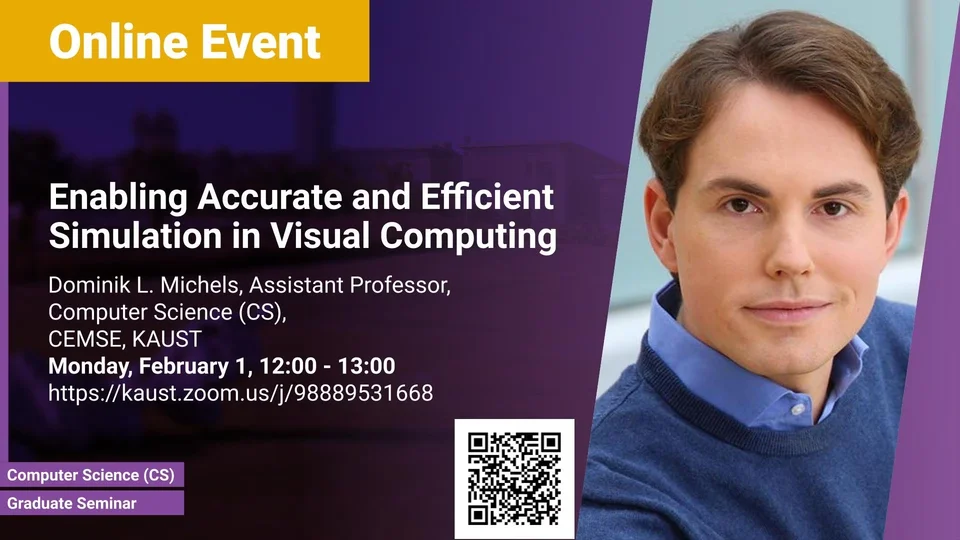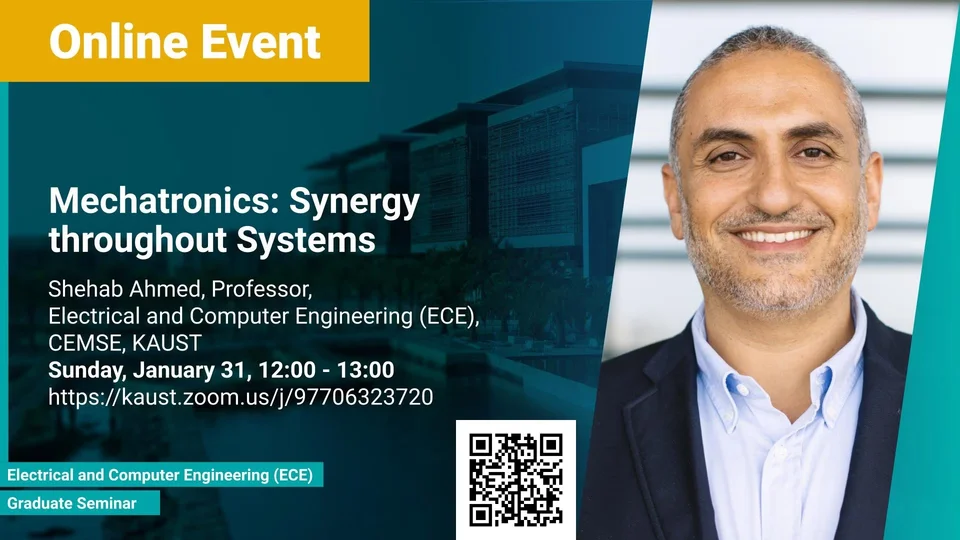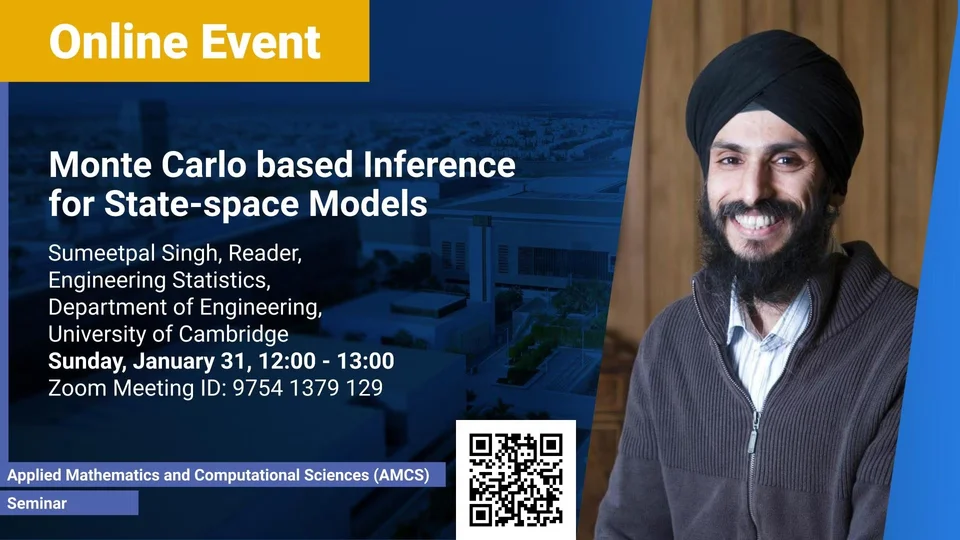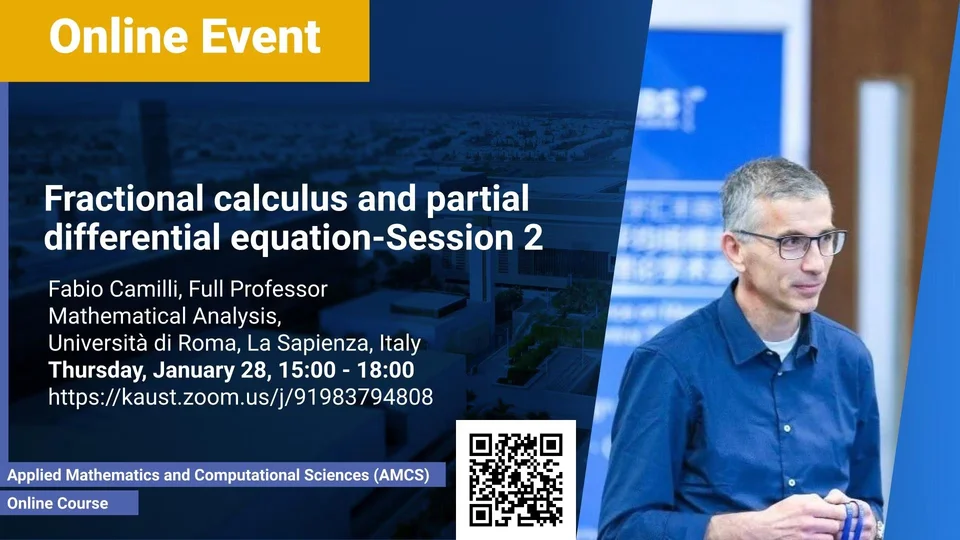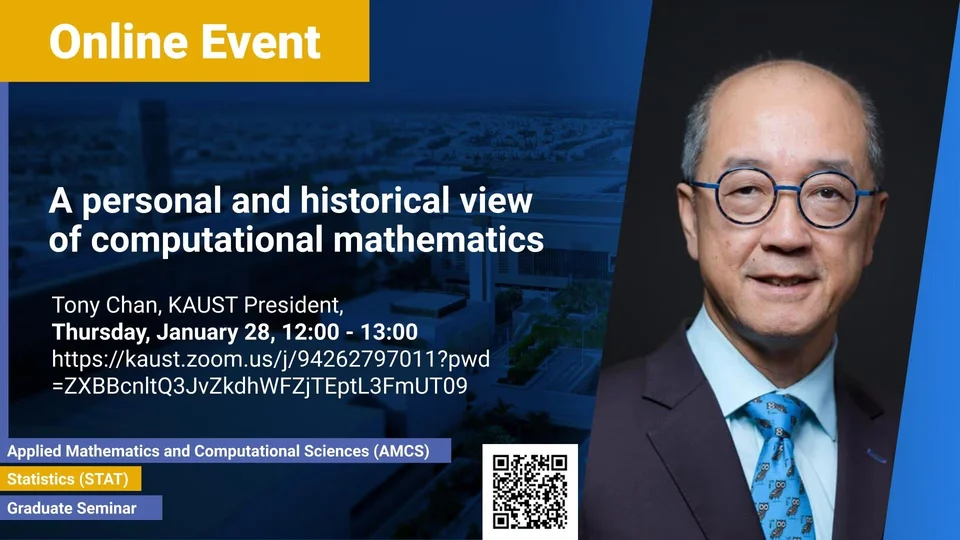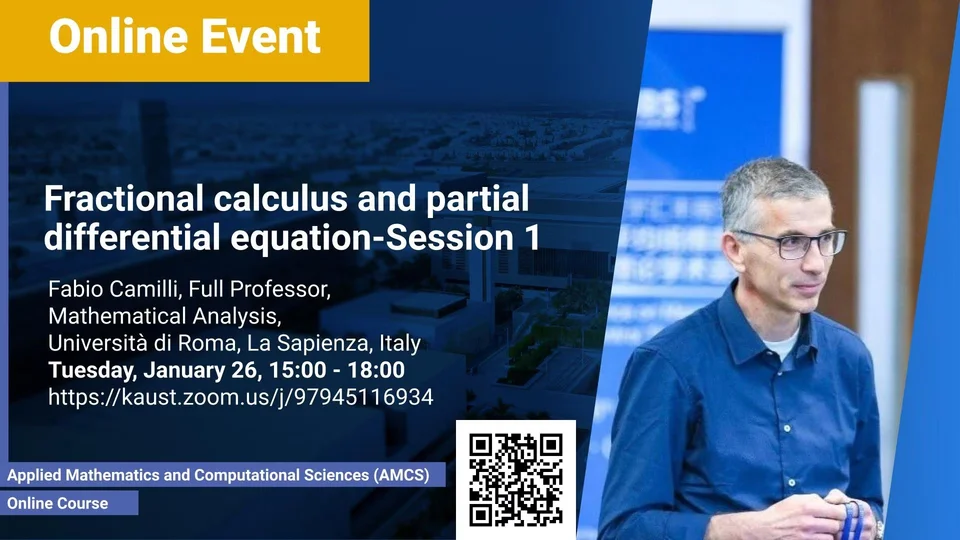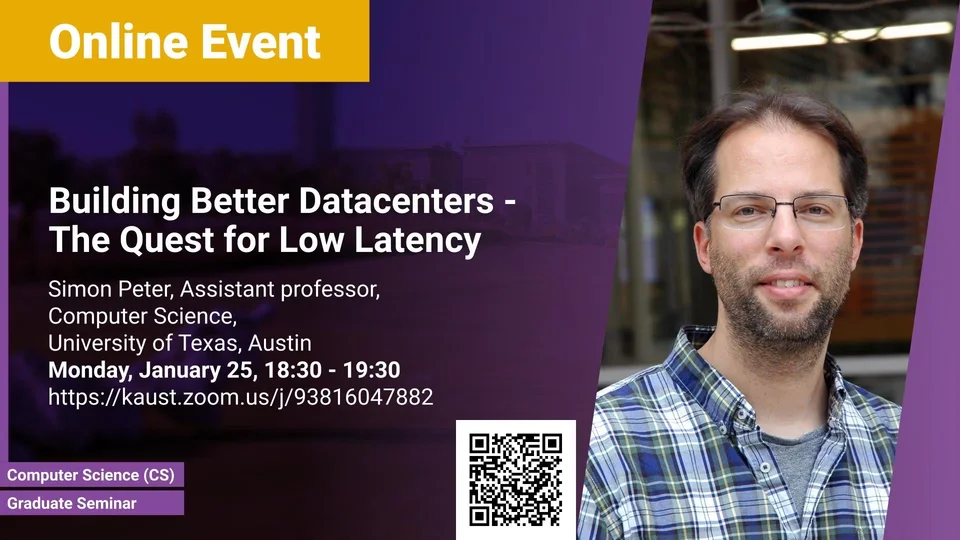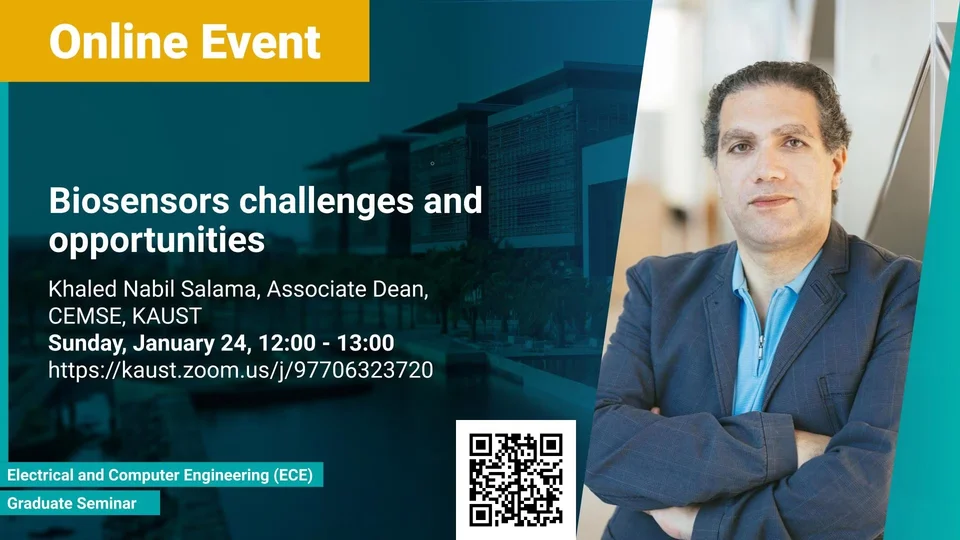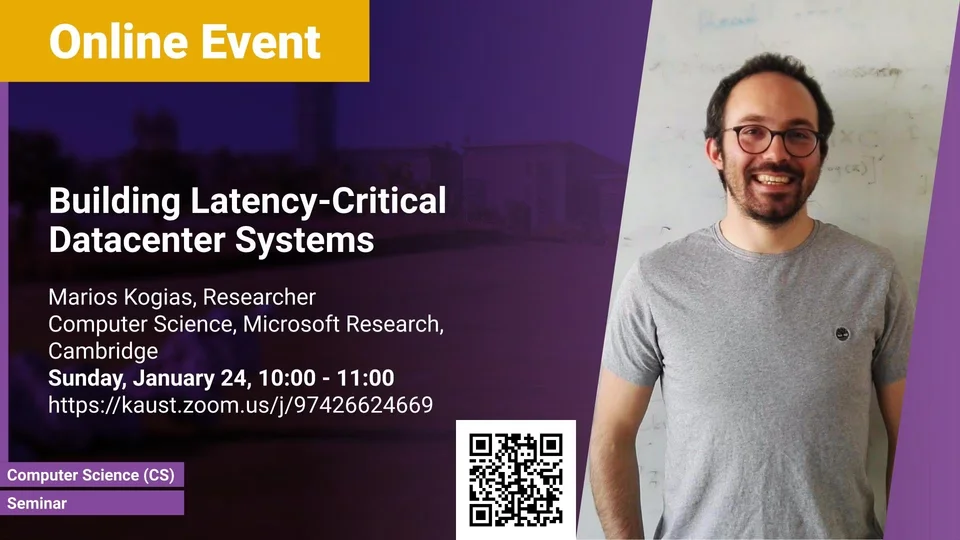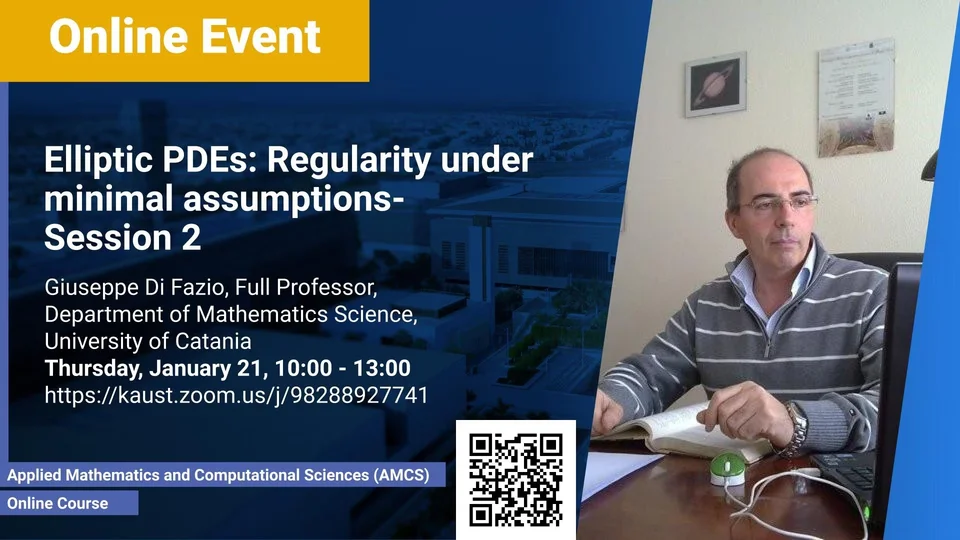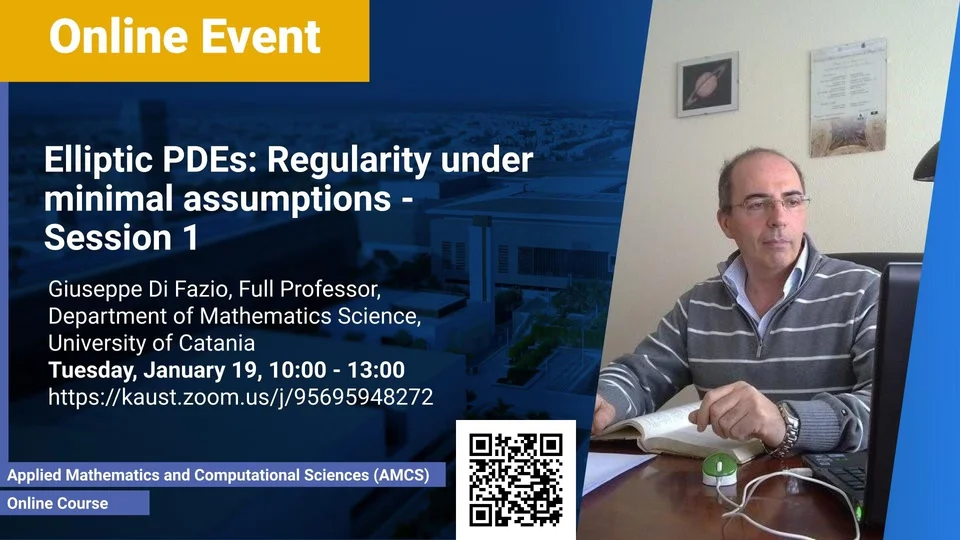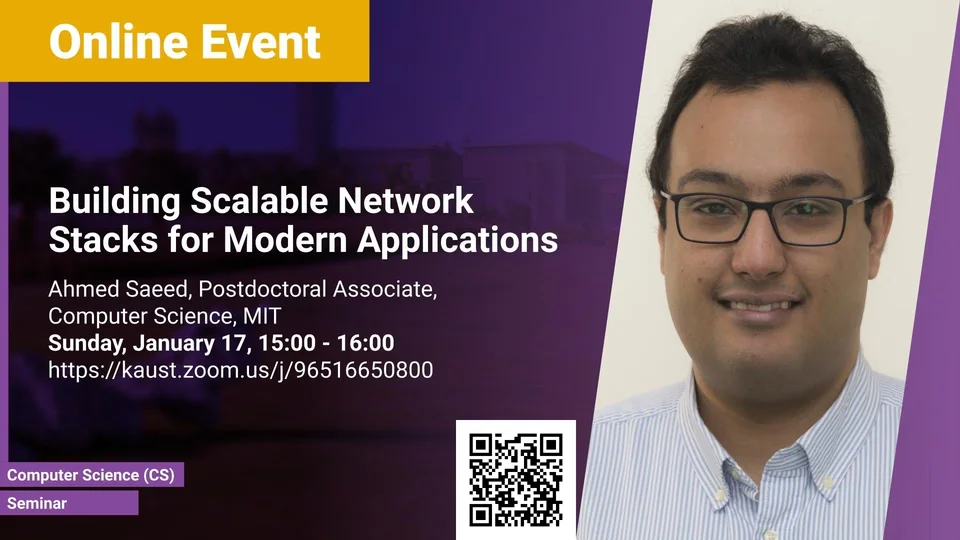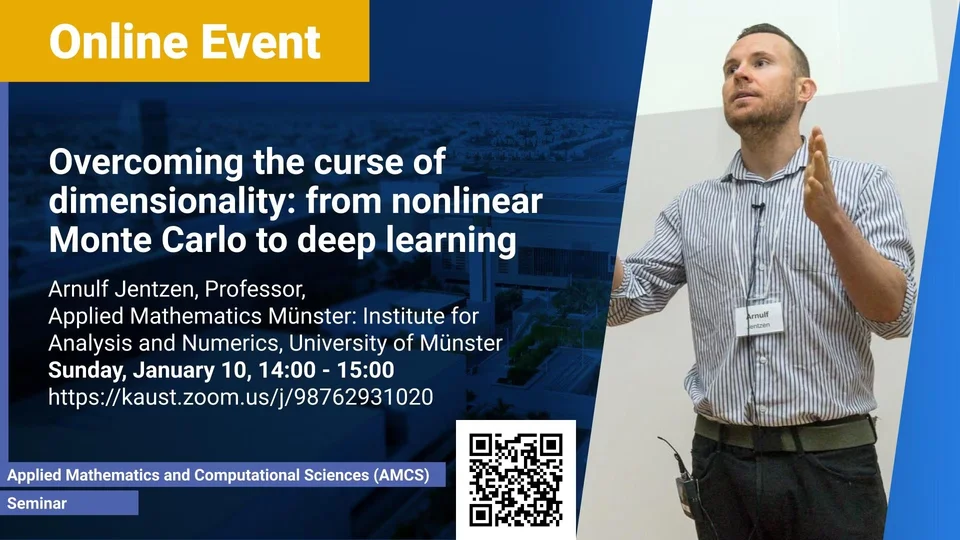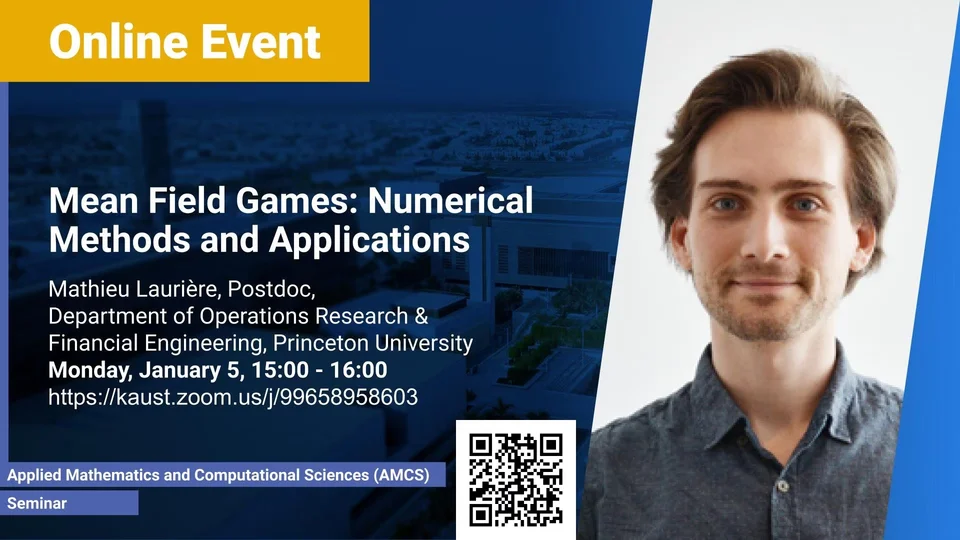Events
Mar 7 - Mar 13, 2021
Fully nonlinear degenerate elliptic equations: qualitative properties of viscosity solutions - Session 2
Martino Bardi, Professor, Mathematical Sciences, University of Padova, Italy
KAUST
Analysis of the compressible two-phase flow
Dr. Ewelina Zatorska, Senior Lecturer in the Applied and Numerical Analysis, Imperial College London
KAUST
Fully nonlinear degenerate elliptic equations: qualitative properties of viscosity solutions - Session 1
Martino Bardi, Professor, Mathematical Sciences, University of Padova, Italy
KAUST
Materials and Devices for Printed Flexible Electronics
Derya Baran, Assistant Professor, Material Science and Engineering, PSE, KAUST
KAUST
Feb 28 - Mar 6, 2021
A proof of the C^p'-regularity conjecture in the plane
Prof. José Miguel Urbano, Mathematics at the University of Coimbra (Portugal)
KAUST
Title: Introduction to free boundary problems - Session 2
Aram Karakhanyan, Professor, School of Mathematics, University of Edinburgh, UK
KAUST
The fourth wave: ultrawide bandgap compound semiconductors for photonics and electronics
Xiaohang Li, Assistant Professor, Electrical and Computer Engineering
KAUST
Feb 21 - Feb 27, 2021
Title: Introduction to free boundary problems - Session 1
Aram Karakhanyan, Professor, School of Mathematics, University of Edinburgh, UK
KAUST
Look Here! Guiding Attention in Complex Visualizations
Manuela Waldner, Assistant Professor at the Research Unit of Computer Graphics of the Institute of Visual Computing and Human-Centered Technology at TU Wien, Austria
KAUST
Feb 14 - Feb 20, 2021
Forward-prediction and Backward-design by Machine Learning
Prof. Xiangliang Zhang
KAUST
Recent developments for stochastic processes and their applications
Ahmed Kebaier, Associate Professor, Laboratory Analysis, Geometry and Application (LAGA), University Sorbonne Paris Nord (USPN)
KAUST
Existence theory for non-separable mean field games - Session 3
David Ambrose, Professor, Department of Mathematics at Drexel University, USA
KAUST
Feb 7 - Feb 13, 2021
Visible Light Communications Technology and Machine Learning - 2021-02-12
Dr. Paul Anthony Haigh, Newcastle University, United Kingdom and Dr. Bo Tan, Tampere University, Finland
KAUST
High Order Numerical Methods for Acoustic and Elastic Scattering
Prof. Vianey Villamizar, Department of Mathematics, Brigham Young University, USA
KAUST
Existence theory for non-separable mean field games - Session 2
David Ambrose, Professor, Department of Mathematics at Drexel University, USA
KAUST
Leveraging Readily Available Data for Low Resource Natural Language Processing
Derry Wijaya, Assistant Professor, Computer Science, Boston University
KAUST
Jan 31 - Feb 6, 2021
Effective Literature Search
Nevena Tomic, Library Subject Specialist, PSE, KAUST
KAUST
Existence theory for non-separable mean field games - Session 1
David Ambrose, Professor, Department of Mathematics at Drexel University, USA
KAUST
Monte Carlo based Inference for State-space Models
Sumeetpal Singh, Reader, Engineering Statistics, Department of Engineering, University of Cambridge
KAUST
Jan 24 - Jan 30, 2021
Fractional calculus and partial differential equation - Session 2
Fabio Camilli, Full Professor of Mathematical Analysis, Università di Roma, La Sapienza, Italy
KAUST
A personal and historical view of computational mathematics
Tony Chan, President, King Abdullah University of Science and Technology
KAUST
Fractional calculus and partial differential equation - Session 1
Fabio Camilli, Full Professor of Mathematical Analysis, Università di Roma, La Sapienza, Italy
KAUST
Building Better Datacenters - The Quest for Low Latency
Simon Peter, Assistant professor, Computer Science, University of Texas, Austin
KAUST
Building Latency-Critical Datacenter Systems
Marios Kogias, Researcher, Computer Science, Microsoft Research, Cambridge
KAUST
Jan 17 - Jan 23, 2021
Elliptic PDEs: Regularity under minimal assumptions - Session 2
Giuseppe Di Fazio,Professor of Mathematics at the University of Catania, Italy
KAUST
Elliptic PDEs: Regularity under minimal assumptions - Session 1
Giuseppe Di Fazio, Professor of Mathematics at the University of Catania, Italy
KAUST
Building Scalable Network Stacks for Modern Applications
Ahmed Saeed, Postdoctoral Associate, Computer Science, MIT
KAUST
Jan 10 - Jan 16, 2021
Overcoming the curse of dimensionality: from nonlinear Monte Carlo to deep learning
Arnulf Jentzen, Professor, Applied Mathematics Münster: Institute for Analysis and Numerics, University of Münster
KAUST
Jan 3 - Jan 9, 2021
Mean Field Games: Numerical Methods and Applications
Mathieu Laurière, Postdoc, Department of Operations Research and Financial Engineering, Princeton University
KAUST
Dec 20 - Dec 26, 2020
What’s the Story with UAV Cellular Communications?
Prof. Giovanni Geraci, Assistant Professor, University Pompeu Fabra (UPF) in Barcelona, Spain
KAUST
